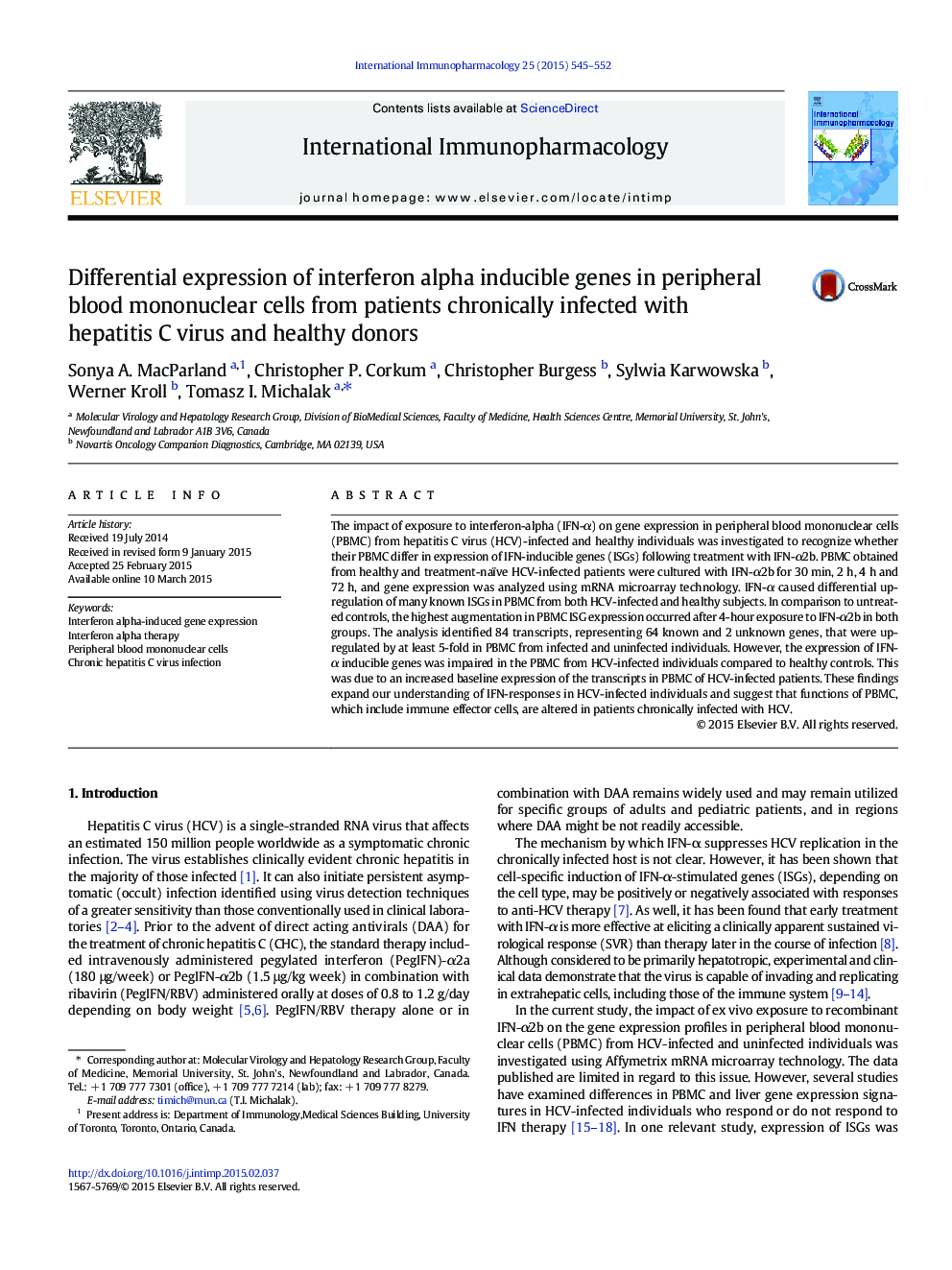| Article ID | Journal | Published Year | Pages | File Type |
|---|---|---|---|---|
| 2540607 | International Immunopharmacology | 2015 | 8 Pages |
•PBMC support HCV infection and are readily accessible for genome expression analyses.•Expression of certain ISGs is augmented in native PBMC from HCV-infected patients.•IFN-α2b has the most prominent impact on PBMC gene expression at 4 h post-treatment.•IFN-α-treated PBMC from HCV-infected patients express significantly lower ISG levels.•Analysis of PBMC gene expression may early predict outcomes of IFN-α therapy.
The impact of exposure to interferon-alpha (IFN-α) on gene expression in peripheral blood mononuclear cells (PBMC) from hepatitis C virus (HCV)-infected and healthy individuals was investigated to recognize whether their PBMC differ in expression of IFN-inducible genes (ISGs) following treatment with IFN-α2b. PBMC obtained from healthy and treatment-naïve HCV-infected patients were cultured with IFN-α2b for 30 min, 2 h, 4 h and 72 h, and gene expression was analyzed using mRNA microarray technology. IFN-α caused differential up-regulation of many known ISGs in PBMC from both HCV-infected and healthy subjects. In comparison to untreated controls, the highest augmentation in PBMC ISG expression occurred after 4-hour exposure to IFN-α2b in both groups. The analysis identified 84 transcripts, representing 64 known and 2 unknown genes, that were up-regulated by at least 5-fold in PBMC from infected and uninfected individuals. However, the expression of IFN-α inducible genes was impaired in the PBMC from HCV-infected individuals compared to healthy controls. This was due to an increased baseline expression of the transcripts in PBMC of HCV-infected patients. These findings expand our understanding of IFN-responses in HCV-infected individuals and suggest that functions of PBMC, which include immune effector cells, are altered in patients chronically infected with HCV.
